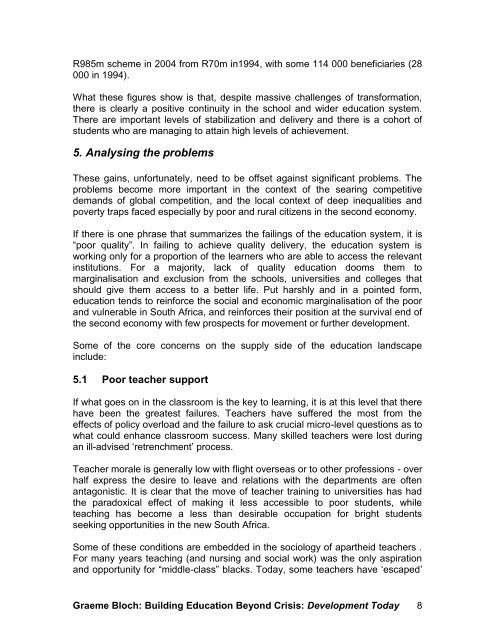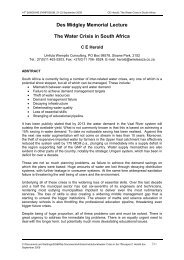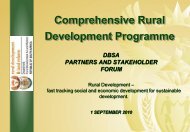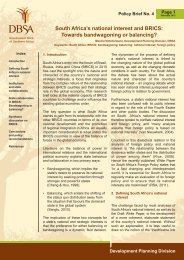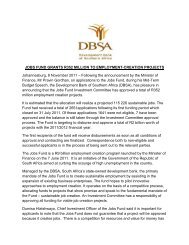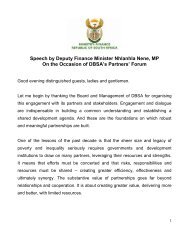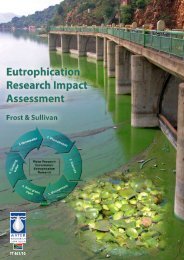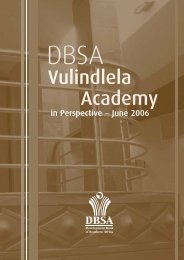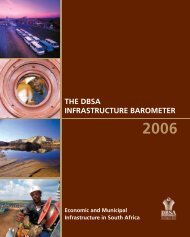Building education beyond crisis.pdf
Building education beyond crisis.pdf
Building education beyond crisis.pdf
Create successful ePaper yourself
Turn your PDF publications into a flip-book with our unique Google optimized e-Paper software.
R985m scheme in 2004 from R70m in1994, with some 114 000 beneficiaries (28000 in 1994).What these figures show is that, despite massive challenges of transformation,there is clearly a positive continuity in the school and wider <strong>education</strong> system.There are important levels of stabilization and delivery and there is a cohort ofstudents who are managing to attain high levels of achievement.5. Analysing the problemsThese gains, unfortunately, need to be offset against significant problems. Theproblems become more important in the context of the searing competitivedemands of global competition, and the local context of deep inequalities andpoverty traps faced especially by poor and rural citizens in the second economy.If there is one phrase that summarizes the failings of the <strong>education</strong> system, it is―poor quality‖. In failing to achieve quality delivery, the <strong>education</strong> system isworking only for a proportion of the learners who are able to access the relevantinstitutions. For a majority, lack of quality <strong>education</strong> dooms them tomarginalisation and exclusion from the schools, universities and colleges thatshould give them access to a better life. Put harshly and in a pointed form,<strong>education</strong> tends to reinforce the social and economic marginalisation of the poorand vulnerable in South Africa, and reinforces their position at the survival end ofthe second economy with few prospects for movement or further development.Some of the core concerns on the supply side of the <strong>education</strong> landscapeinclude:5.1 Poor teacher supportIf what goes on in the classroom is the key to learning, it is at this level that therehave been the greatest failures. Teachers have suffered the most from theeffects of policy overload and the failure to ask crucial micro-level questions as towhat could enhance classroom success. Many skilled teachers were lost duringan ill-advised ‗retrenchment‘ process.Teacher morale is generally low with flight overseas or to other professions - overhalf express the desire to leave and relations with the departments are oftenantagonistic. It is clear that the move of teacher training to universities has hadthe paradoxical effect of making it less accessible to poor students, whileteaching has become a less than desirable occupation for bright studentsseeking opportunities in the new South Africa.Some of these conditions are embedded in the sociology of apartheid teachers .For many years teaching (and nursing and social work) was the only aspirationand opportunity for ―middle-class‖ blacks. Today, some teachers have ‗escaped‘Graeme Bloch: <strong>Building</strong> Education Beyond Crisis: Development Today 8


